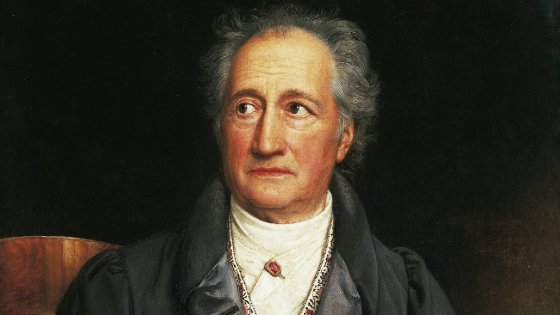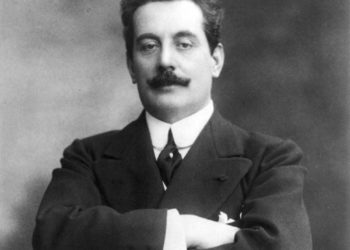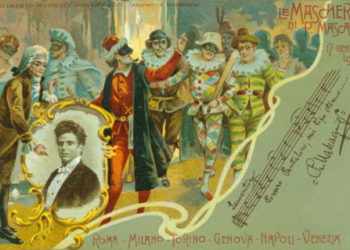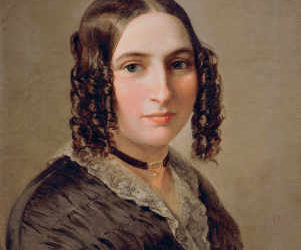Today is the anniversary of the death of one of the most important exponents of German culture, Johann Wolfgang Goethe (Frankfurt, 28 August 1749 – Weimar, 22 March 1832). In order to commemorate this great poet we publish the poem he dedicated to Fanny Mendelssohn, “To the distant girl” (An die Entfernte).
In these verses Goethe expresses all his admiration for the composer and his desire that she set to music his lyrics.
But let us explain the genesis of this poem.
In 1821, Wolfgang von Goethe, at the age of seventy-two, invited Felix Mendelssohn and his sister Fanny to visit him in Weimar to spend a couple of weeks in his company. In reality it was Carl Friedrich Zelter, his friend and musical consultant, who solicited this meeting. Felix was allowed to accept the invitation, but Fanny was denied permission. In Weimar Felix played a lot of music for Goethe, and because he always had his sister in heart, he made the old poet listen to some of Fanny’s lieder performed by Goethe’s stepdaughter. The poet was impressed and, at the same time, displeased that the girl was not with them. For this reason he immediately wrote a short lyric dedicated to Fanny entitled “To the distant girl”, wishing that Fanny would put his verses in music. He entrusted this lyric to Zelter, asking him for delivering it to “to the dear child”. Fanny, however, never set these verses in music.
An die Entfernte (German) Wenn ich mir in stiller Seele Singe leise Lieder vor: Wie ich fühle, daß sie fehle, Die ich einzig auserkohr; Möcht' ich hoffen, daß sie sänge, Was ich ihr so gern vertraut; Ach! aus dieser Brust und Enge Drängen frohe Lieder laut.
To the distant girl (English) When, in my quiet soul, I sing soft songs to myself, How I feel that she is missing - She, the only one whom I have chosen. If I could hope that she would sing What I have so gladly entrusted to her, Ah! From this breast, this constriction, Joyous songs would burst forth loudly.
























